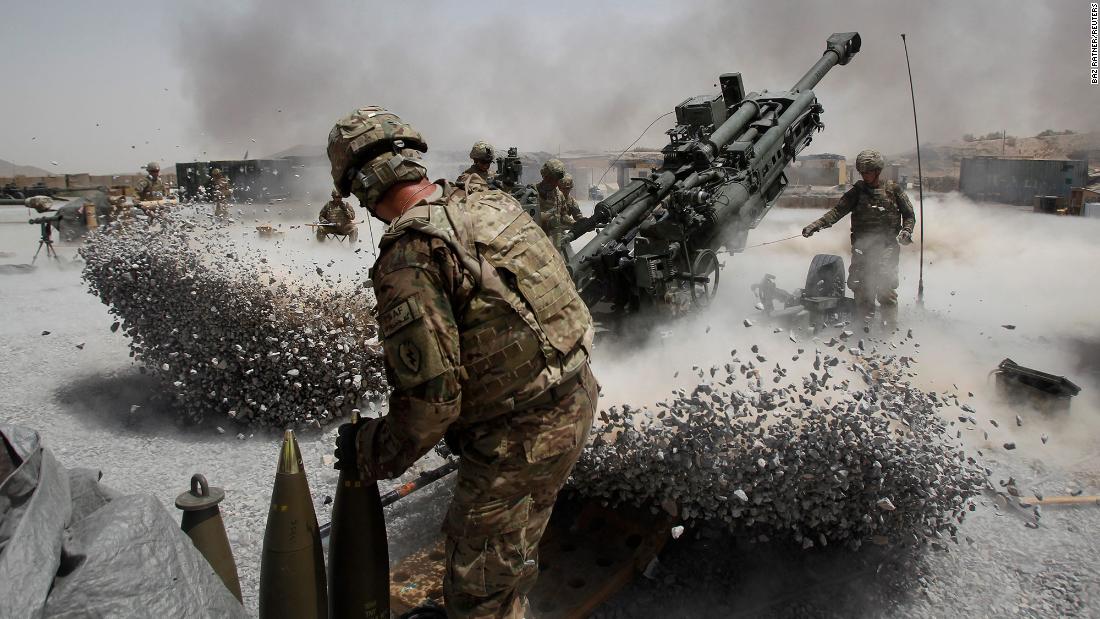Despite President Joe Biden’s historic announcement to decisively withdraw U.S. troops presently stationed in war-torn Afghanistan, the nation’s longest-running war might actually last a while longer, as a fear-mongering campaign of propaganda and reactionary politics gradually resonates with the American public.
Spanning over 19 years, the U.S.’s post-9/11 assault on Afghanistan has up until now deployed a colossal number of troops, totaling more than 775,000 soldiers, since the war began. This total figure includes most active forces stationed there today with some noteworthy exceptions. Despite a report from the U.S. Department of Defense claiming only 2,500 troops are actively serving in Afghanistan, the official data does not account for private military contractors or active special operations units in its findings. Consequently, the real figure is more likely somewhere in the ballpark of 3,500 U.S. troops. Interestingly enough, a set of congressional research found that in the final fiscal quarter of 2020, there were over 7,800 U.S. citizens on the government payroll stationed in Afghanistan.
Among those nearly 800,000 troops deployed, the DOD reports more than 20,600 U.S. troops were wounded and 2,300 died in combat-related fatalities. Since the U.N. began documenting civilian casualties in 2009, their data suggests no less than 100,000 Afghan civilians have fallen victim to the war’s unrelenting brutality. Worsening the hefty toll on the U.S., the losses in human life accompany an exorbitant price tag. Similar to the devastating war in Iraq, the U.S.’s military involvement in Afghanistan has generated a crippling financial burden for the U.S., one weighing especially heavy on the frayed shoulders of the American taxpayer.
From 2010 to 2012, the U.S. military presence in Afghanistan exceeded over 100,000 soldiers, resulting in the war’s total cost soaring upwards to nearly $100 billion, per year. According to a comprehensive 2019 study conducted by the Watson Institute of International & Public Affairs at Brown University, the DOD’s published report titled, “Estimated Cost to Each Taxpayer for the Wars in Afghanistan and Iraq,” found that during March 2020, “Department of Defense OCO spending for the wars in Iraq, Syria, Afghanistan and Pakistan cost a total $7,623 per taxpayer” through the fiscal year of 2018. Additionally, the two grueling wars in Afghanistan and Pakistan alone cost an approximated joint total of $978 billion.
Announcing his administration’s decision to finally end the nation’s two-decade-long conflict in the Middle East, Biden’s decision to withdraw troops by Sept. 11, 2021, directly threatens a small group of immensely powerful people comprising Eisenhower’s forewarned “military-industrial complex.” Mainstream proponents of preserving the U.S.’s Middle Eastern dominance are either unaware of the post-9/11 wars’ cumulative financial cost, as well as the extensive loss in life, or simply willing to overlook the catastrophic consequences and casualties in the name of profit or actions of U.S. global dominance.
Following the president’s somewhat expected announcement on April 14, major news networks and key political players are publicly expressing their opposition to the troop withdrawal. Stories recently appearing in widely read news publications such as the Financial Times, NBC News, Bloomberg, CNN and some others all likewise stoke American fears over the hypothetical dangers involved in the U.S.’s new absence from Afghanistan. Subtle fearmongering is similarly evident throughout each referenced article, mainly in their warnings over what attacks may ravage the U.S. or the innocent people of Afghanistan as a result.
Painting an immensely detailed portrait of gratuitous endurance, the Financial Times article follows the story of Muhammud Gul, a young soldier for the Afghan army committed to destroying the Taliban. Needless to say, those living in a battle-scarred region have certainly endured ailing hardships, but the article claims, “The U.S. leaves Afghanistan at a time when the Kabul government is fragile, beset by corruption and poisonous internal rivalries. Some in the Taliban say they are confident that if they bide their time they can install an Islamic Emirate, a scenario that risks completely reversing U.S. efforts to support the democratization and modernization of Afghan society.”
Rep. Liz Cheney, a Republican from Wyoming, is publicly adamant in protesting the Biden administration’s recently announced troop withdrawal. “Any withdrawal of forces based on a political timeline … any withdrawal of forces that is not based on conditions on the ground puts American security at risk,” Cheney told journalists after a private meeting of House Republicans. While her statement is not without its own merit, Cheney’s voting record is undeniably hawkish, consistently empowering national defense much like her father, the widely demonized former Vice President Dick Cheney. She calls the 20th-anniversary troop withdrawal on Sept. 11 a “huge propaganda victory” and mocks the notion of commemorating a national tragedy with national surrender.
While Liz Cheney continues pontificating about how this supposedly radical decision jeopardizes American security, someone ought to remind her, as if it is necessary, that under her own father’s watch nearly 3,000 Americans died in the most gruesome terrorist attack this nation has ever endured. It is also worth mentioning that these attacks occurred despite the CIA’s numerous White House briefings, many of which covered newly gathered intelligence and repeatedly warned about a possible upcoming terrorist attack. Not to mention, Liz Cheney mentions little to nothing about those put in harm’s way. Regardless of what action the U.S. takes, it is all about American security, as she puts it.
Serving as one of the American government’s most blatantly avoidable but egregious conflicts of interest, Dick Cheney’s reign as the CEO of Halliburton, the multinational oil field service corporation, concluded on July 25, 2000, while he ran as George W. Bush’s presidential running mate. However, many rightfully wonder if this really did mark the end of his work for the internationally prominent corporation. This sense of doubt primarily stems from Halliburton’s involvement in the Iraq war as well as the company and its subsidiaries’ sky-rocketing profits. According to an article published by Chron, “KBR, the Army’s largest contractor in Iraq, was picked for a no-bid contract worth as much as $568 million through 2011 for military support services in Iraq, according to Army officials.” Halliburton is the parent company of KBR.
According to Business Insider, “The company was given $39.5 billion in Iraq-related contracts over the past decade, with many of the deals given without any bidding from competing firms, … a deal that led to a Justice Department lawsuit over alleged kickbacks, as reported by Bloomberg.” Between politically influential members of the news media apparatus and the nation’s bought and paid for elected officials, the public objection to bringing U.S. troops home is sickening and worse—indicative of a deteriorating set of national priorities.


















Be First to Comment